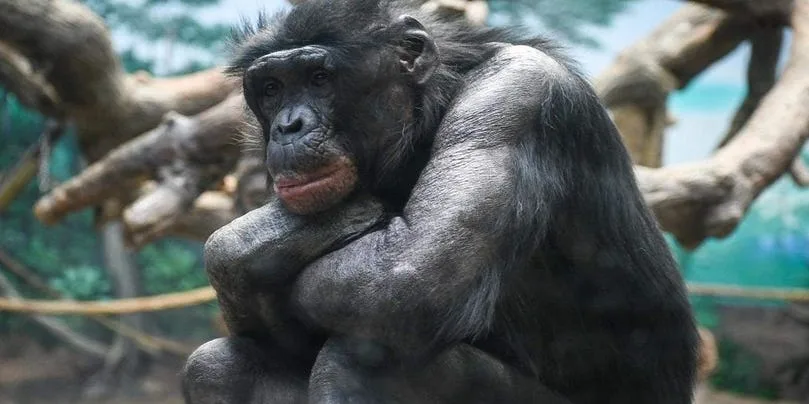In the heart of the Cincinnati Zoo and Botanical Garden, a place dedicated to wildlife conservation and education, a heavy sense of grief lingers following the passing of Amali, a beloved 3-year-old bonobo.
The news has sent waves of sorrow through the zoo community and beyond, as Amali’s brief but impactful life touched the hearts of staff and visitors alike. In this article, we will delve into the life of Amali, the circumstances surrounding her passing, and the broader implications for bonobo conservation efforts.
Amali’s Early Life and Impact on the Community:
Amali’s journey began at the Cincinnati Zoo in 2020, where she was born to her mother, Kesi. As a bonobo, a close relative to chimpanzees, Amali represented a species facing increasing threats in the wild. The Cincinnati Zoo, known for its commitment to conservation, played a pivotal role in Amali’s upbringing.
Read More: Eye Cancer Escalation in Pakistan: Unveiling the Unsettling Surge
Amali quickly became a favorite among zoo visitors, captivating audiences with her playful antics and endearing personality. The zoo’s dedicated staff worked tirelessly to ensure Amali’s well-being and to educate the public about the importance of protecting bonobos and their natural habitats.
Circumstances Surrounding Amali’s Passing in Cincinnati Zoo:
Despite the best efforts of the zoo’s veterinary and animal care teams, Amali’s health took an unexpected turn. The circumstances surrounding her passing shed light on the challenges faced by zookeepers and conservationists in caring for endangered species.
Preliminary reports suggest that Amali succumbed to a sudden illness, raising questions about the vulnerability of bonobos, even in the controlled environment of a zoo. The zoo is conducting a thorough investigation to understand the cause of Amali’s illness and to prevent similar incidents in the future.
The loss of Amali serves as a stark reminder of the fragility of life, even within the protected confines of a zoo. It prompts us to reflect on the broader issues affecting the survival of bonobos in their natural habitats and the urgency of conservation efforts.
Conservation Challenges Facing Bonobos:
Amali’s passing underscores the critical need for intensified conservation measures to protect bonobos in the wild. As one of the least studied great ape species, bonobos face numerous threats, including habitat loss, poaching, and disease. The Cincinnati Zoo has been actively involved in supporting initiatives aimed at preserving bonobo populations and their ecosystems.
In the Democratic Republic of Congo, where the majority of bonobos reside, ongoing conflicts and political instability exacerbate the challenges faced by conservationists. The loss of suitable habitats due to deforestation further compounds the issue, pushing bonobos closer to the brink of extinction.
International collaboration is essential to address these challenges effectively. Zoos, research institutions, and conservation organisations must collaborate to safeguard bonobos in their natural habitats and promote human-wildlife coexistence.
The Legacy of Amali: Inspiring Conservation Action:
While Amali’s passing is undoubtedly a somber moment, her legacy can serve as a catalyst for positive change. The Cincinnati Zoo and other institutions can use Amali’s tale to promote bonobo conservation and other crucial efforts.
Education, community outreach, and funding can boost DRC conservation programmes. By telling Amali’s story, the zoo can inspire conservationists and governments.
Looking Ahead: The Future of Bonobo Conservation:
After Amali’s death, the Cincinnati Zoo is reassessing its bonobo conservation efforts. This tragedy reminds the world to prioritise biodiversity conservation and endangered species survival.
Collaboration between zoos, conservation organizations, and local communities is paramount. Environmental degradation and illicit wildlife trade harm bonobos; thus, sustainable solutions for them and their communities are needed.
Conclusion:
Those who knew Amali at the Cincinnati Zoo and among wildlife enthusiasts mourn her death. As we mourn the loss of this young bonobo, we must channel our grief into action. Amali’s legacy can encourage individuals, institutions, and governments to collaborate to protect bonobo in their natural environments. We can honour Amali and help save all animals by working together.
Share this content:

